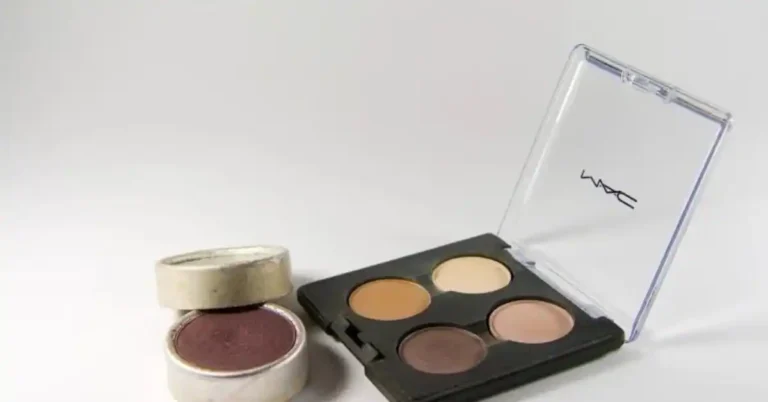5 Skincare Tips for a Healthy Glow Inside and Out
In our fast-paced lives, maintaining healthy, glowing skin can often feel like an elusive goal. With numerous skincare products flooding the market, it’s easy to get lost in a sea of options. However, achieving radiant skin doesn’t have to be complicated or expensive. By adopting a few simple habits and incorporating key skincare tips into your routine, you can nurture your skin from the inside out, unveiling a natural, luminous glow. Here are five expert-approved skincare tips to help you achieve just that.
Hydration
Hydration is the cornerstone of healthy skin, both inside and out. Water is vital for maintaining the body’s overall health and plays a crucial role in keeping the skin hydrated and radiant. Without proper hydration, the skin can become dry, tight, and prone to various issues such as flakiness, dullness, and even accelerated aging.

Drinking an adequate amount of water throughout the day is essential for ensuring your healthy skin stays hydrated from within. Water helps to flush out toxins from the body, including those that can contribute to skin problems like acne and inflammation. When your body is properly hydrated, your skin appears plump, supple, and more youthful.
Moreover, hydrated skin functions more effectively as a protective barrier against environmental aggressors, such as pollutants and UV rays. This barrier helps to prevent moisture loss and maintain optimal skin health.
In addition, to drinking water, incorporating hydrating foods into your diet can further support skin hydration. Fruits and vegetables with high water content, such as cucumbers, watermelon, and oranges, provide not only hydration but also healthy essential vitamins, minerals, and antioxidants that contribute to healthy skin.
When it comes to skincare products, choosing hydrating formulations is key. Look for moisturizers, serums, and facial mists that contain hydrating ingredients like hyaluronic acid, glycerin, and ceramides. These ingredients help to attract and retain moisture in the healthy skin, keeping it soft, smooth, and well-nourished.
In addition, to external hydration, it’s important to avoid factors that can contribute to healthy skin dehydration, such as excessive caffeine and alcohol consumption, smoking, and exposure to harsh weather conditions. These can all deplete the healthy skin’s natural moisture levels and lead to dryness and dehydration.
Cleanse Gently
“Cleanse gently” is a phrase often used in skincare to emphasize the importance of using mild, non-irritating cleansers that effectively remove dirt, oil, and impurities from the skin without stripping away its natural oils or causing irritation. This approach is particularly important for individuals with sensitive healthy skin or skin conditions like eczema or rosacea.
To cleanse gently, consider the following tips:
- Choose a mild cleanser: Look for products labeled as “gentle,” “mild,” or “for sensitive healthy skin.” Avoid harsh ingredients such as sulfates, alcohol, and artificial fragrances, which can strip the skin and cause irritation.
- Use lukewarm water: Avoid using water that is too hot, as it can strip the skin of its natural oils and lead to dryness and irritation. Opt for lukewarm water instead.
- Be gentle: When cleansing your healthy skin, use gentle, circular motions with your fingertips or a soft washcloth. Avoid scrubbing too vigorously, as this can damage the skin’s protective barrier.
- Pat dry: After cleansing, gently pat your skin dry with a soft towel instead of rubbing it vigorously, which can cause irritation.
- Moisturize: Follow up with a gentle moisturizer to help replenish moisture and keep your skin hydrated.
By following these gentle cleansing tips, you can effectively cleanse your healthy skin without causing unnecessary irritation or damage.
Sun Protection Factor
The Sun Protection Factor (SPF) is a measure of how well a sunscreen protects the healthy skin from the harmful effects of ultraviolet (UV) radiation from the sun. SPF indicates the level of protection against sunburn caused by UVB rays, which are primarily responsible for causing sunburn and can contribute to healthy skin cancer.

Here’s what you need to know about SPF:
- What Does SPF Mean? SPF is a numerical rating that indicates the level of protection provided by a sunscreen against UVB rays. The SPF number represents the amount of time it takes for UVB rays to cause sunburn on protected skin compared to unprotected skin. For example, if you apply a sunscreen with SPF 30, it theoretically takes 30 times longer for your skin to burn compared to if you were not wearing sunscreen.
- Levels of Protection: Sunscreens are available in various SPF levels, typically ranging from SPF 15 to SPF 50+. Higher SPF numbers indicate higher levels of protection. However, it’s essential to note that no sunscreen offers 100% protection, and higher SPF values do not necessarily provide proportionally higher protection. SPF 30 is considered the minimum level of protection recommended by dermatologists.
- Sunburn Prevention: SPF primarily measures protection against UVB rays, which are responsible for causing sunburn. Sunscreens with higher SPF values can provide greater protection against sunburn, but it’s important to reapply sunscreen regularly, especially after swimming, sweating, or extended sun exposure, regardless of the SPF level.
- Broad-Spectrum Protection: While SPF measures protection against UVB rays, it’s also crucial to choose a broad-spectrum sunscreen that offers protection against both UVA and UVB rays. UVA rays penetrate deeper into the skin and contribute to premature aging and skin cancer. Look for sunscreens labeled as “broad-spectrum” to ensure comprehensive protection.
- Application Guidelines: To achieve the SPF protection indicated on the sunscreen label, it’s essential to apply an adequate amount of sunscreen to all exposed healthy skin at least 15 to 30 minutes before sun exposure. Reapply sunscreen every two hours, or more frequently if swimming or sweating, to maintain optimal protection.
- Limitations: While sunscreen is an essential tool for sun protection, it’s only one part of a comprehensive sun protection strategy. Seek shade during peak sun hours, wear protective clothing, including hats and sunglasses, and avoid prolonged sun exposure to minimize the risk of sunburn and skin damage.
Nourish with Antioxidants
Nourishing your body with antioxidants is important for overall health and well-being. Antioxidants are molecules that help protect your cells from damage caused by harmful molecules known as free radicals. Free radicals are produced naturally in the body as a result of metabolism, but they can also come from external sources like pollution, cigarette smoke, and UV radiation.
Antioxidants work by neutralizing free radicals, which can otherwise cause oxidative stress and damage to cells, proteins, and DNA. This damage is associated with various chronic diseases, including cancer, heart disease, and neurodegenerative disorders.
Here are some ways to incorporate antioxidants into your diet:
- Eat a variety of fruits and vegetables: Fruits and vegetables are rich sources of antioxidants such as vitamin C, vitamin E, beta-carotene, and various flavonoids. Aim to include a colorful array of fruits and vegetables in your diet to maximize antioxidant intake.
- Choose antioxidant-rich foods: Berries (such as blueberries, strawberries, and raspberries), leafy greens (such as spinach and kale), nuts and seeds (such as almonds and sunflower seeds), and colorful vegetables (such as bell peppers and tomatoes) are particularly high in antioxidants.
- Include herbs and spices: Many herbs and spices are also rich in antioxidants. Examples include cinnamon, turmeric, oregano, and ginger. Adding these to your meals not only enhances flavor but also boosts antioxidant content.
- Drink green tea: Green tea contains antioxidants called catechins, which have been shown to have various health benefits, including reducing the risk of certain cancers and improving heart health. Drink green tea regularly as part of your beverage choices.
- Eat antioxidant-rich grains: Whole grains like quinoa, barley, and oats contain antioxidants such as selenium and various phenolic compounds. Incorporate these grains into your healthy diet as a source of both antioxidants and fiber.
- Include healthy fats: Foods rich in healthy fats, such as avocados, olive oil, and fatty fish like salmon, provide antioxidants like vitamin E and omega-3 fatty acids, which have anti-inflammatory properties and help protect against oxidative damage.
- Consider supplements: While it’s best to get antioxidants from whole healthy foods, supplements can be useful for individuals who may have difficulty meeting their antioxidant needs through diet alone. However, it’s important to consult with a healthcare professional before starting any supplement regimen to ensure safety and effectiveness.
Get Your Beauty Sleep
In today’s fast-paced world, with the hustle and bustle of daily life, getting enough sleep often takes a backseat. However, what many people don’t realize is that quality sleep plays a significant role in maintaining healthy, glowing skin. While we sleep, our bodies undergo a process of repair and regeneration, and this includes our skin. Here’s how prioritizing quality sleep can benefit your skin and contribute to a radiant complexion:

- Cellular Repair and Regeneration: During sleep, the body’s production of growth hormone increases, which aids in the repair and regeneration of cells, including skin cells. This cellular turnover process helps to replace old or damaged skin cells with new ones, resulting in a smoother, more youthful-looking complexion.
- Reduced Inflammation: Lack of sleep can lead to increased levels of stress hormones like cortisol in the body, which can trigger inflammation. Inflammation is associated with various skin issues, including acne, eczema, and psoriasis. By getting enough sleep, you can help reduce inflammation in the body, leading to calmer, clearer skin.
- Improved Circulation: Adequate sleep improves blood circulation, ensuring that oxygen and nutrients are effectively delivered to the skin cells. This enhanced circulation helps promote a healthy complexion by nourishing the skin from within and giving it a natural, radiant glow.
- Balanced Hormones: Sleep plays a crucial role in regulating hormone levels in the body, including hormones that affect the skin, such as cortisol and melatonin. Hormonal imbalances can contribute to various skin issues, including acne, dryness, and premature aging. By prioritizing quality sleep, you can help maintain hormonal balance, leading to healthier, more balanced skin.
- Reduction in Under-Eye Bags and Dark Circles: Lack of sleep can result in fluid retention and poor circulation, leading to the appearance of under-eye bags and dark circles. Getting enough sleep allows the body to properly drain excess fluid and improve circulation, reducing puffiness and dark circles for a brighter, more refreshed appearance.
To optimize the benefits of sleep for your skin, aim for seven to nine hours of quality sleep each night. Establishing a consistent bedtime routine, creating a sleep-friendly environment, and practicing relaxation techniques can help improve the quality of your sleep and maximize its benefits for your skin.






